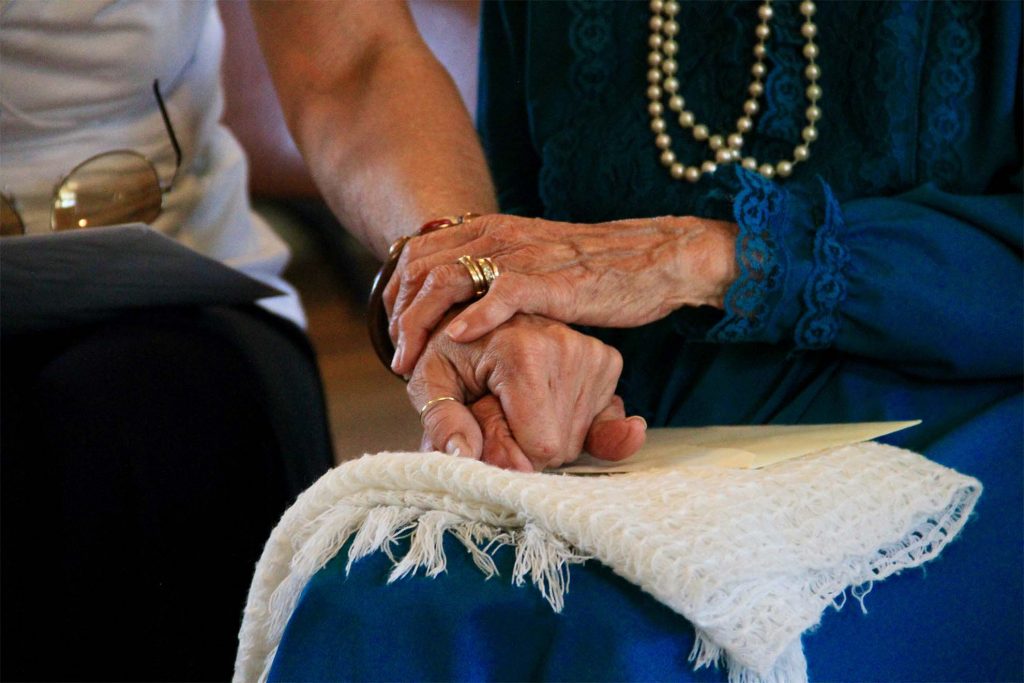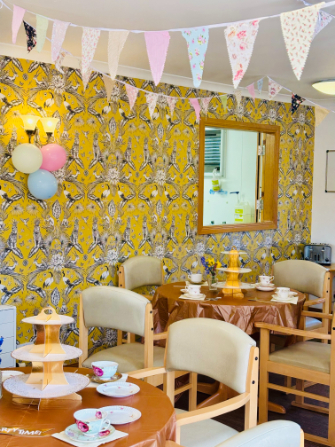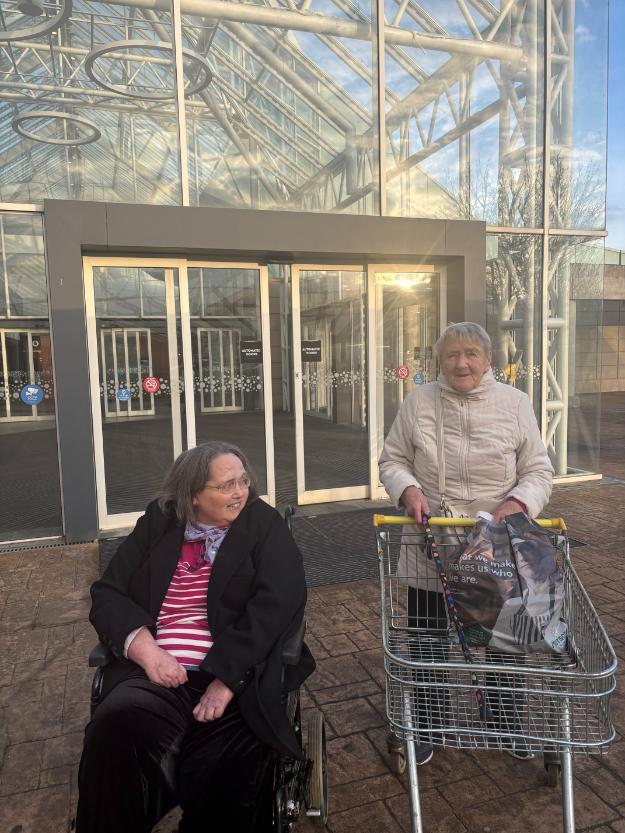When Should Someone With Dementia Move into a Care Home?

Caring for someone who is suffering from dementia can be extremely challenging and can become more demanding as symptoms get worse. If you’re in a position where you’re struggling, you may have to think about alternative care options to help you manage. Possibly have the person who is living with dementia move into a care home. But, when is the right time for someone with dementia to move into a care home? How do you make the decision, or who should make that decision?
All of these questions are hard decisions to make, both for emotional and practical reasons and it’s common to feel guilty about it; feeling as if you’re abandoning your loved one. It’s also a question of who should make the decision of moving the person with dementia into the home, as it can be difficult to know what the person living with dementia wants, depending on their mental capacity.
Within this blog, we will help you with some advice on moving someone with dementia into a care home, when could be the right time, who should make the decisions and what the benefits are.
How Do You Know When It’s The Right Time?
It can be difficult to know when to move someone with dementia into a residential care home, the main thing to think about would be whether your loved one’s needs are met currently at home; is moving into a care home within their best interests?

When Should a Person With Dementia go into a Care Home?
If someone’s dementia is progressing further and they need more care and support than you can provide, it may be time for them to go into a care home as they may possibly need 24 hour care.
Dementia is progressive, therefore their condition will require more support and care as time goes on. Likewise, if your loved one’s condition declines, whilst their needs increase you then might not be able to fully meet their needs and requirements, despite your best efforts.
This is a main reason as to why someone could be moving into a care home, other reasons include hospital admissions, worry about your loved one’s safety or if their behaviour becomes unmanageable.
Sadly, there is no cure for dementia and the physical and mental state of someone living with the condition will only worsen, meaning there is never a perfect time due to the stress and emotional difficulties. However, if the individual needs 24 hour supervision and support to stay safe wilt ensuring a good quality of life, the only option may be to move into a residential or dementia care home. One idea which is beneficial is to write a list of your loved one’s needs and requirements and if you’re able to support them. For example, ‘My wife can’t safely go outside by herself, I have to take her outside in the mornings’ or ‘Can I guarantee she won’t leave the house without me - no, it worries me when I’m not there’.

As you’re writing the list and start to realise that you are unable to provide the right care and support necessary for your loved one, taking into account your other commitments, then it could be the right time to consider care. Likewise, if your loved one isn’t able to live independently and cannot care for themselves anymore, then moving into a care home will give them the benefit of 24-hour care and support, ensuring you’ll have peace of mind in knowing that your loved one is safe, receiving the highest standard of care.
Knowing When To Let Go
As well as putting the person with dementia first, it’s also important to do what’s best for you as a full-time carer as well as anyone else involved. Caring for someone with dementia is always an uphill battle which will become more challenging over time. The mental and physical exhaustion it has takes its toll on everyone as well as the relationships between one another. Therefore, finding a suitable care home can take that stress away, enabling you to make the time together more positive and happy.
How do Care Homes Benefit People Living With Dementia?
There are many benefits when it comes to moving someone into a care home, especially those suffering from dementia or Alzheimer's disease. During the early stages, residential care would be a good option as the individual may not yet need specialised care and support. When the dementia progresses further, changing care plans to a setting in which provides dementia or nursing care is advised, ensuring they get the most suitable level of care.
Benefits Include:
- Support and personal care from professionally trained care staff 24 hours a day
- Care home staff can supervise your loved one, ensuring that they stay safe
- Living with others means your loved one can take part in social activities
- Visiting your loved one rather than caring for them allows you to enjoy your time together without the added pressure - you’re no longer their carer
- You’re still able to provide support whilst influencing their care
Most care homes will specialise in dementia care and even have dedicated dementia units for residents with dementia. Some homes also have specialised facilities to help those with dementia, such as sensory rooms, memory cafes, special lighting, reminiscence rooms and so much more; they’re well equipped to provide long term care.
Who Should Make The Decision?
It’s ideal for the person with dementia to make the decision as to whether they go into a home or not an they should always, as far as possible, be offered any additional help to do so. However, we understand that sometimes this isn’t possible as people with dementia often lack mental capacity to know what’s within their best interests and to be able to communicate this. Additionally, they might not understand the further implications and consequences of moving away from home, or they do understand; yet can’t make this known.
If your loved one lacks the ability to be able to make decisions about their own care, especially on their own, having a lasting power of attorney in place also allows you to make these decisions for them. A health and welfare LPA also lets you decide when your loved one should move into a care home. With a property and financial affairs LPA in place, you can also organise the move without financial support as you have the legal power to do so, whilst paying for their care.
The decision to put someone into a care home usually happens during an emergency or at the very least, within short notice. This can make the move feel more pressured and stressful as of time constraints being a huge factor. If you are short on time, it means you have less time to find a home that you’re happy with, ensuring you’d feel comfortable sending your loved one there. We understand its hard; but planning in advance is advisable as it gives you the opportunity to include your loved as much as possible, even if they’re unable to make the whole decision by themselves when the day comes.
Regardless of who makes the final decision, it has to be within the person’s best interests, they should always be involved within the process.

Struan Lodge Care Home for Dementia Care
Struan Lodge Care Home provides dementia care for those suffering from dementia and within our home we foster a mixed living community, where residents become one cohesive family, all whilst receiving the best level of care. Our residents enjoy full access to outstanding facilities and within our team, we deliver personalised care needs round the clock care, seven days a week. With limited numbers of residents we’re able to prioritise one-to-one support, whether that’s addressing needs or planning activities. Our care home is designed to provide a homely, welcoming and caring environment and our activity coordinators are always going above and beyond to ensure those with dementia and their family members benefit from any activities or therapies that are appropriate for their needs, helping them thrive. It’s important for our residents to take part in daily activities as it helps improve their social and mental stimulation, as well as interaction whilst relieving any frustrations and tensions associated with dementia.
If you’d like to find out more about our wonderful care home and the care we provide for those with dementia, please don’t hesitate to get in touch with one of our team members today.





